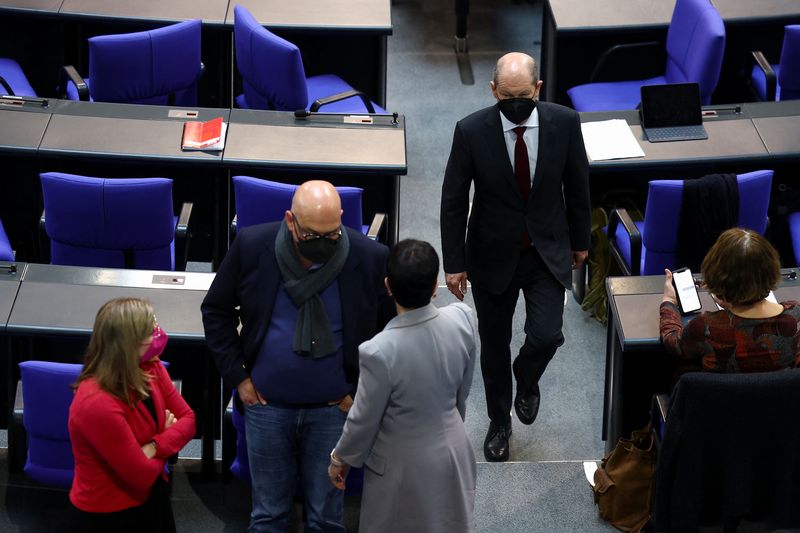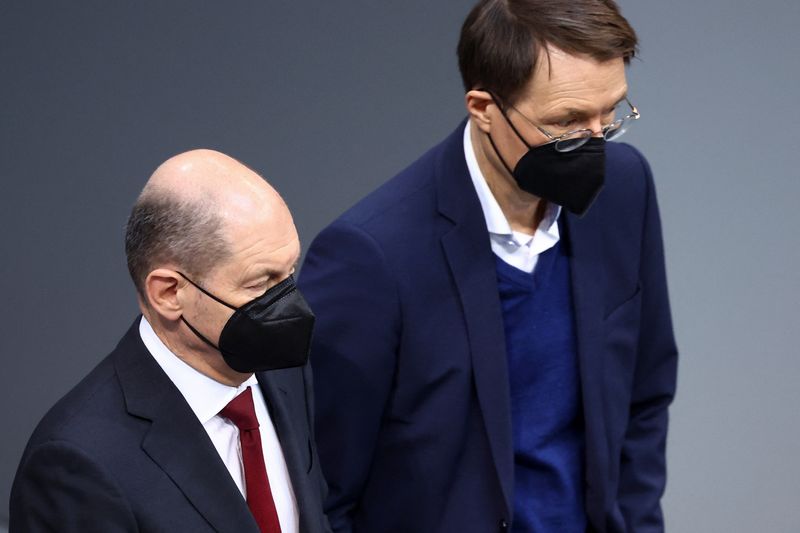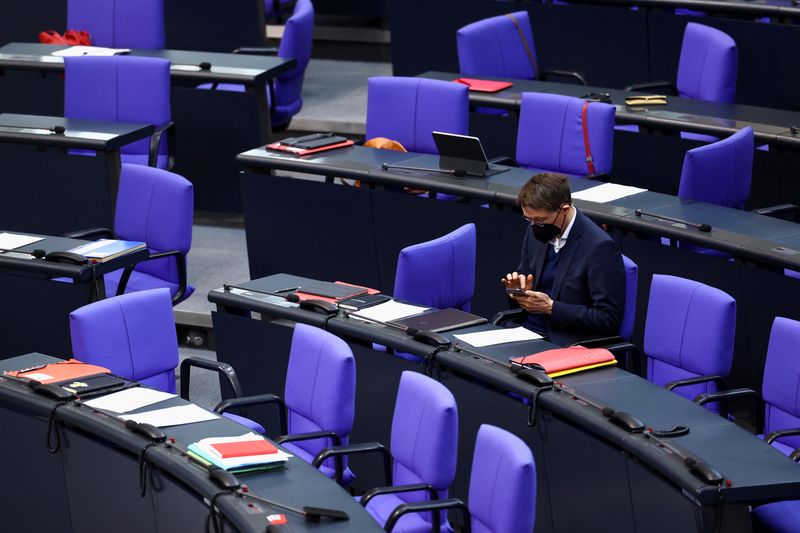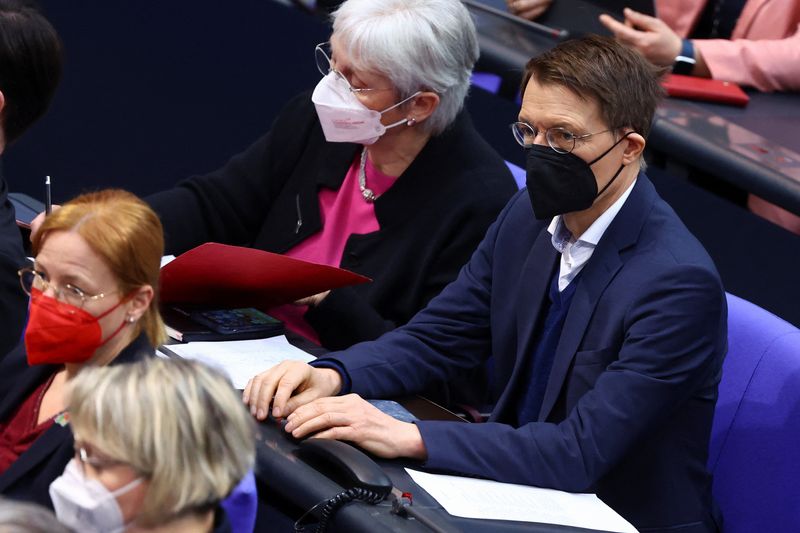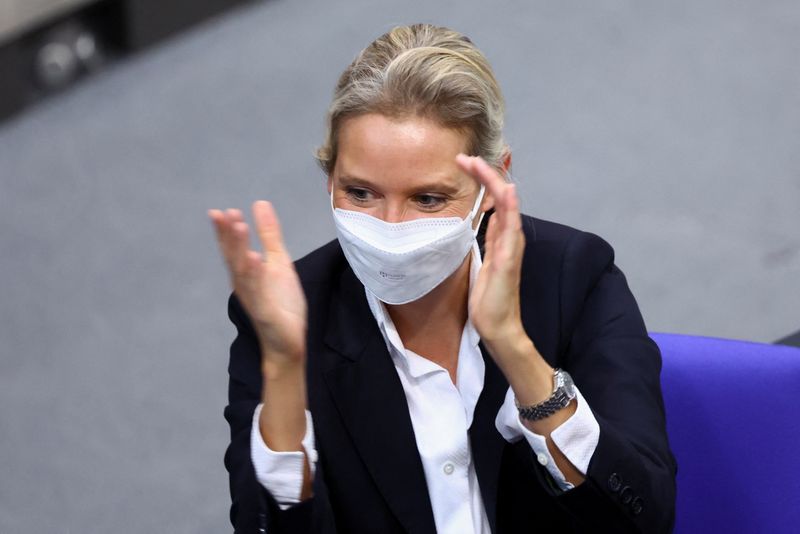BERLIN (Reuters) -German Chancellor Olaf Scholz said he was disappointed the lower house of parliament on Thursday voted against a COVID-19 vaccine mandate for people over 60, but would not launch a second attempt to push for a mandate.
Germany’s vaccination campaign is faltering, with around 76.6% of Germany’s population having received at least one dose – less than the more than 80% in other western European countries such as France, Italy and Spain.
A cross-party proposal had envisaged a bill requiring citizens aged 60 and over to be vaccinated against COVID-19 from Oct. 15, in an attempt to avoid another wave of the virus in the autumn.
Daily infections are at a high level in Germany but have dipped in the last week or so, with 201,729 new cases reported on Thursday.
Of the 683 parliamentarians who voted, 378 voted against the bill and 296 in favour, triggering cheers from far-right AfD lawmakers. It was a free vote, meaning that lawmakers were not told to follow party lines.
“I find the Bundestag’s decision very clear,” Scholz said, adding that the government would seek other ways to increase the country’s vaccination rate rather than having a second go at pushing through compulsory vaccinations.
“We will do everything we can to convince more citizens of this country to get vaccinated,” Scholz said late on Thursday.
The defeat is a setback for Scholz who had even summoned his foreign minister, Annalena Baerbock, to leave a NATO meeting in Brussels to return for the vote.
Scholz had last week been forced to drop plans for mandatory vaccinations for anyone over 18 as he could not muster a parliamentary majority.
Dirk Wiese, a lawmaker involved in initiating the bill, blamed opposition conservatives, saying they blocked the bill to hurt the government.
“The CDU/CSU (conservatives) have unscrupulously answered a question of conscience,” Wiese said in a statement.
The bill’s failure reflects the challenging policy-making dynamics of the ruling coalition, comprising Scholz’s Social Democrats, the Greens and liberal Free Democrats who disagree on many issues.
Three additional motions either calling for only advising people to get vaccinated or rejecting the mandate altogether were also voted down after a lively four-hour debate.
Imposing vaccinations on citizens violates the second article of the constitution, which guarantees citizens’ control over their own bodies, the AfD motion argued.
Austria last month suspended its vaccine mandate, six days before fines for breaches were due to start being imposed, on concerns about infringing rights.
The German Hospital Federation (DKG) said the failure of the draft bill was the responsibility of all parties.
“In the end, we now face a shambles for which all parties are responsible,” DKG Chairman Gerald Gass told the Rheinische Post newspaper.
(Additional reporting by Andreas Rinke and Holger Hansen; Editing by Raissa Kasolowsky, Nick Macfie and Bernard Orr)

